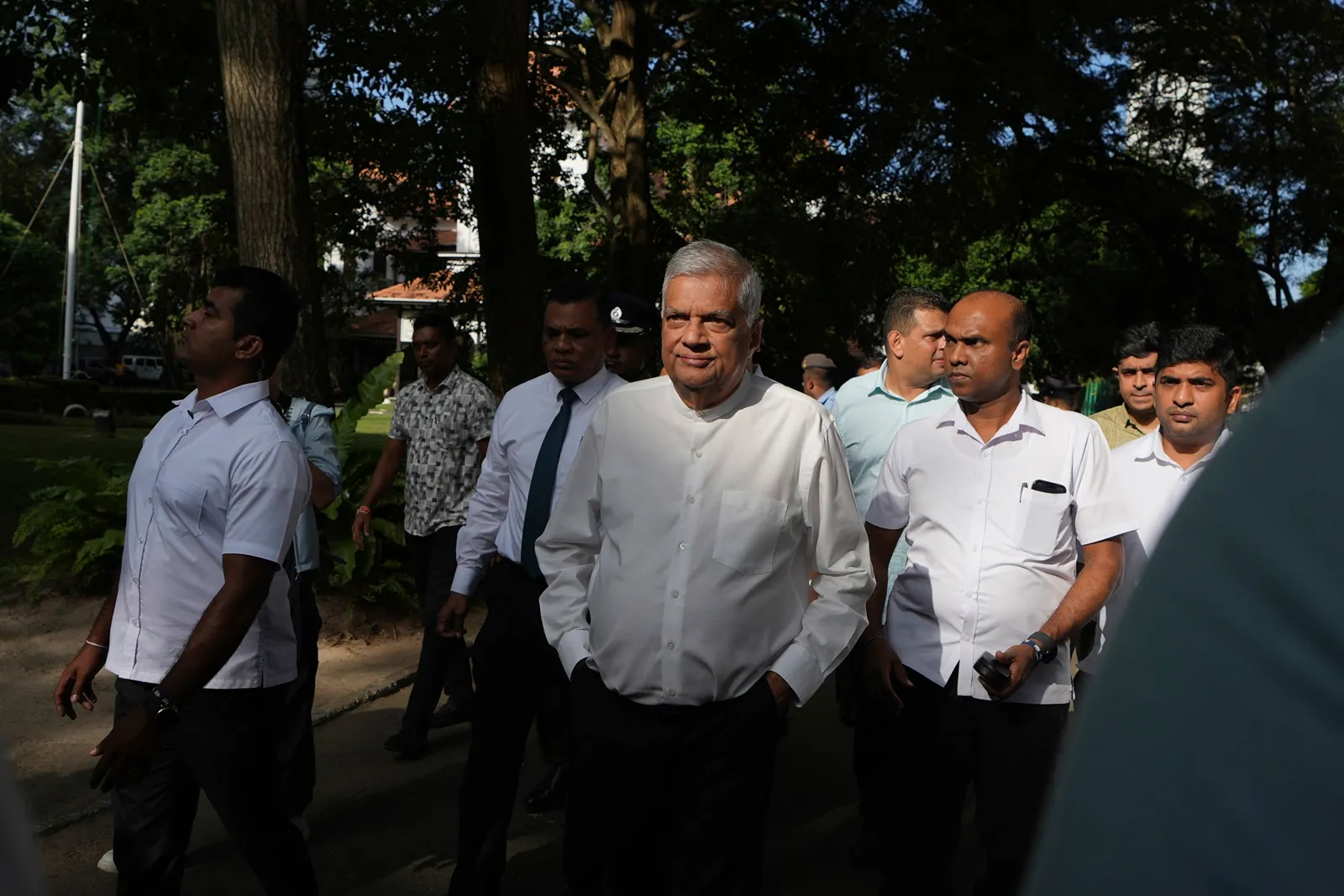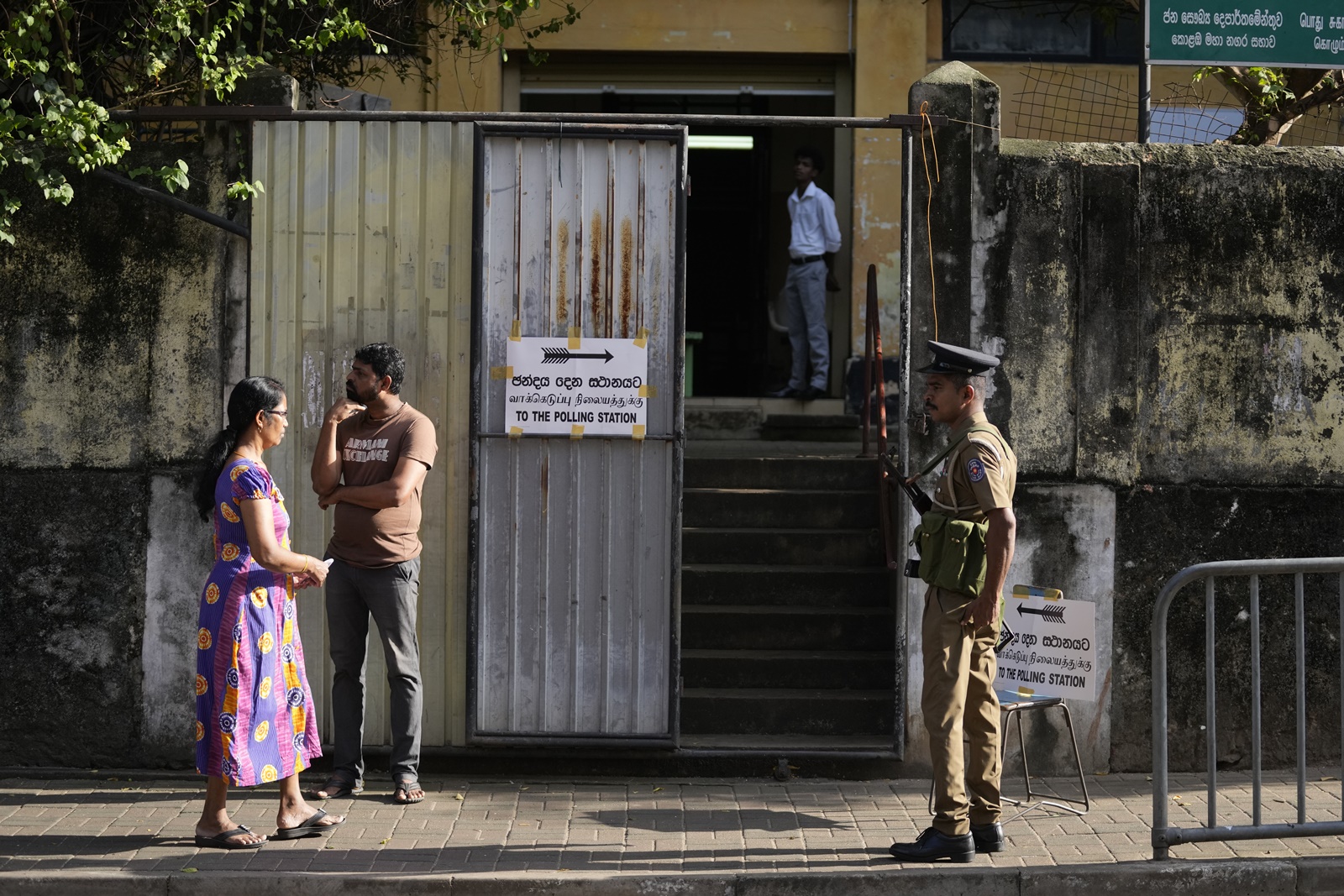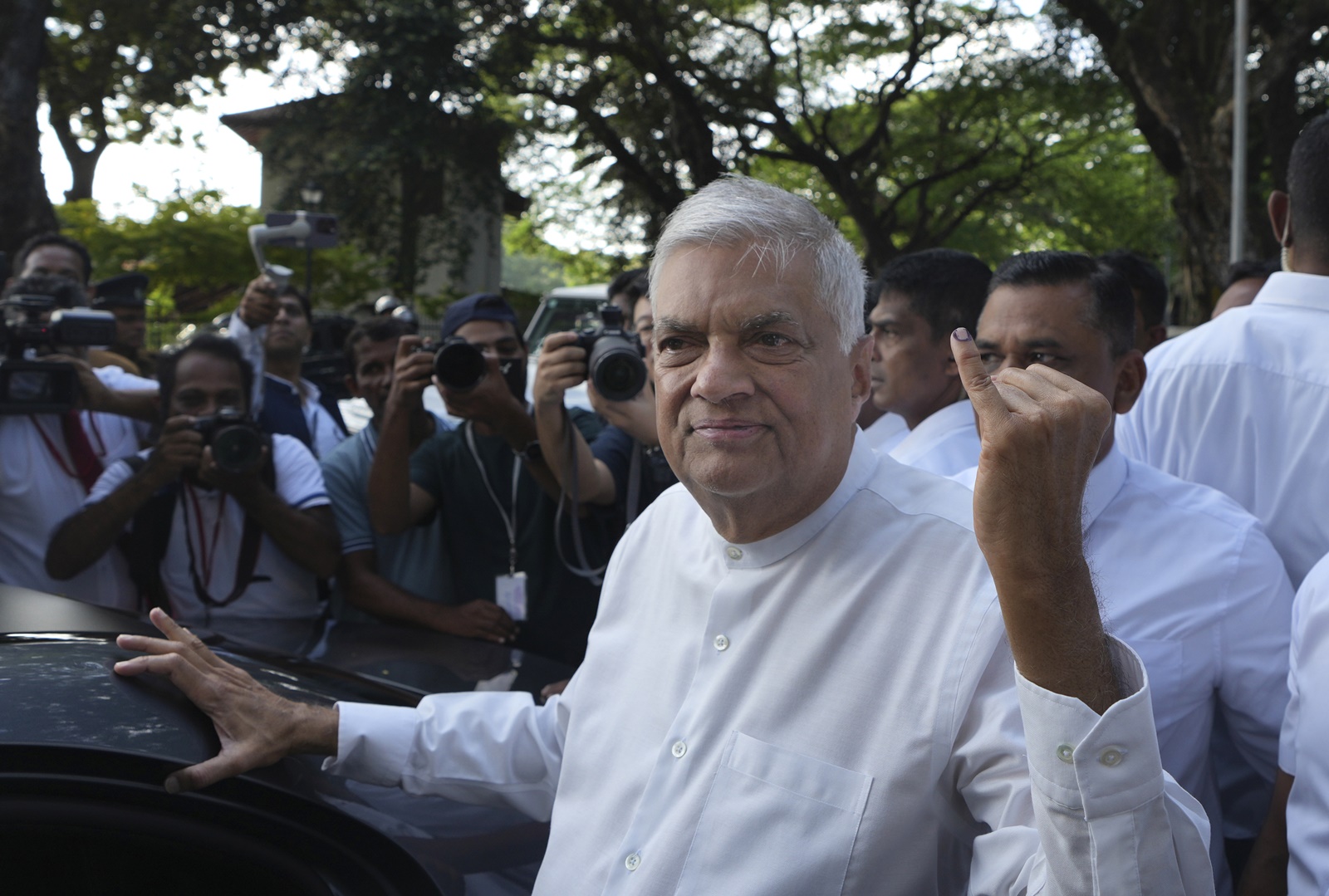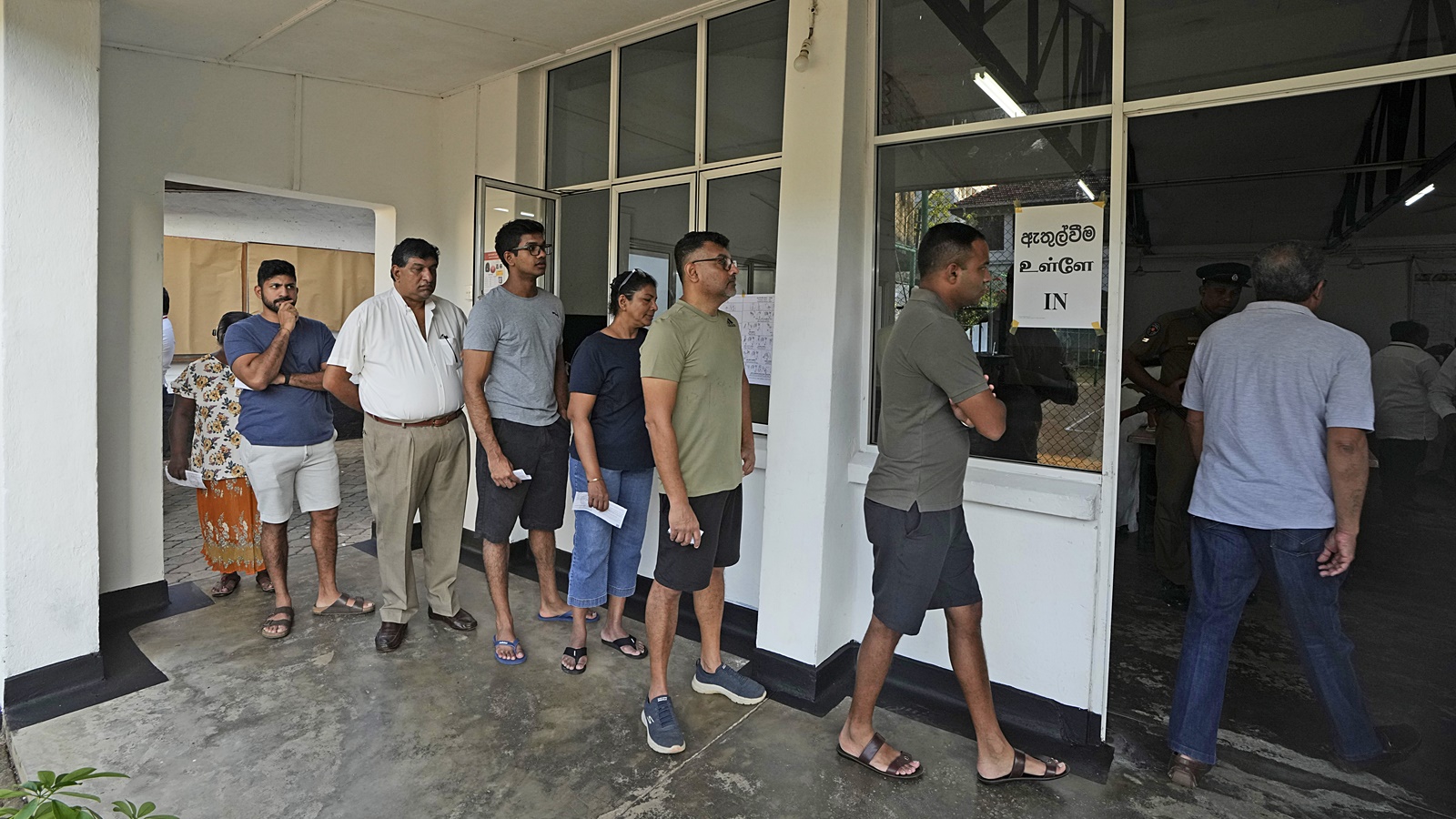The 2024 presidential election in Sri Lanka can prove to be a turning point in the nation’s political, social and economic history. The backdrop of this election is one of profound crisis — both in terms of governance and the economy — offering a historic opportunity for the electorate to shape the country’s future. With an array of candidates from different coalitions and a political system rocked by protests and demands for radical change, this election is not just about choosing a new leader but determining the direction the country will head in the coming years.
Sri Lanka’s current crisis is the result of years of economic mismanagement, deep-rooted corruption, and political instability. The 2022 protests, known locally as the Aragalaya movement, forced President Gotabaya Rajapaksa’s resignation, ending the Rajapaksa family’s dominance in Sri Lankan politics.
The protests erupted after the country experienced a severe financial meltdown, which led to food shortages, fuel scarcity, and hyperinflation. Amid the worsening conditions, the protestors demanded a complete overhaul of the existing political system, emphasising the need for “system change” rather than mere reform.
The economic meltdown is the most important issue for the Sri Lankan masses. It was not just a financial crisis; it was a humanitarian catastrophe. People queued for days to buy fuel and cooking gas, inflation skyrocketed, and foreign reserves dried up. As a result, the election has shifted its focus from typical party politics to the survival and recovery of the country itself. The key candidates vying for the presidency are making ambitious promises, but the electorate will need to choose carefully between continuity and radical change.

The candidates and the issues
At the heart of this election are four leading candidates, each offering a different vision for Sri Lanka’s future. The Sri Lanka Podujana Peramuna (SLPP), with Namal Rajapaksa — son of former President Mahinda Rajapaksa — as its candidate, is not a strong contender because of the party’s dwindling support. Over the past two decades, the Rajapaksa family has been a dominant force in Sri Lankan politics, producing two presidents.
Ranil Wickremesinghe, the current president, took office after Gotabaya Rajapaksa’s resignation, positioning himself as a stabilising force during the chaos. He is contesting as an independent candidate. Wickremesinghe has worked to negotiate international loans with the IMF to salvage the economy. However, his economic policies, which include unpopular austerity measures, have drawn criticism. Many feel his approach is out of touch with the population’s immediate needs, focusing on long-term recovery while people struggle daily. Despite his experience and efforts to bring stability, voters will decide whether they see him as part of the solution or as a continuation of the old system that led the country into crisis.
Sajith Premadasa, leader of the Samagi Jana Balawegaya (SJB), offers a centrist alternative. His campaign centres on economic justice and social welfare, aiming to bring immediate relief to the suffering masses. Premadasa, the son of former President Ranasinghe Premadasa, emphasises poverty reduction, public service improvement, and a focus on the common man. However, while he tries to present himself as a fresh face, his connections to the political elite have led some to view him as part of the status quo. In a country desperate for change, Premadasa’s challenge is to convince voters that he can bridge the gap between stability and the demand for reform.
The fourth major candidate is Anura Kumara Dissanayake, the National People’s Power (NPP) leader. The NPP consists of 29 left and social democratic parties, trade unions and grass-root groups and has attracted intellectuals, lawyers and economists to its fold. Dissanayake has gained considerable support, particularly among younger voters, by riding the wave of the Aragalaya protests and promising systemic change. Dissanayake’s platform is centred on anti-corruption, restoring public trust, and restructuring the economy to benefit ordinary people. His message of “system change” resonates with those disillusioned by years of mismanagement and inequality.

However, Dissanayake’s critics argue that his proposals might be too idealistic and difficult to implement in a country that relies heavily on international financial institutions. Furthermore, Dissanayake’s party, the Janatha Vimukthi Peramuna (JVP), has a history rooted in a unique blend of Marxism-Leninism and Sinhala nationalism, which continues to alarm some older voters and the Tamil minority due to an uprising in 1971 and a violent campaign in the late 1980s. Dissanayake will need to persuade these voters that his party has evolved and is ready to lead the country responsibly.
What a victory for the Left would mean
The stakes of the 2024 presidential election in Sri Lanka are extraordinarily high. It is not just a contest between candidates but a referendum on the country’s future. The next president will have to navigate a tangled web of public dissatisfaction, international financial obligations and political instability. A win for Wickremesinghe would suggest voters favour continuity and stability in the face of hardship, preferring to work within the existing system rather than dismantling it.
On the other hand, Dissanayake’s victory would signal a rejection of the political establishment and a desire for bold reforms. His presidency would test whether his promises for a “system change” are achievable or merely populist rhetoric. Premadasa, if successful, would likely aim for a centrist approach, balancing the calls for reform with a pragmatic understanding of Sri Lanka’s economic challenges.

As Sri Lankans prepare to vote, the outcome remains uncertain. Dissanayake and the NPP could build on the momentum of the Aragalaya movement to secure a historic victory, shifting the political landscape toward a more populist, reform-oriented government. However, such a victory would present significant challenges, as the NPP would need to manage high public expectations while steering the country through complex economic difficulties. A victory for Wickremesinghe or Premadasa would suggest that voters prefer continuity or a moderate approach to governance.
Ultimately, Sri Lanka stands at the crossroads. With the economic meltdown and trust in the government at an all-time low, voters face a monumental task in choosing a leader who will guide them through this crisis. Whether they opt for stability or a complete overhaul, the 2024 presidential election will have lasting implications for the country’s future.
Behera is professor at MMAJ Academy of International Studies, Jamia Millia Islamia, New Delhi.



